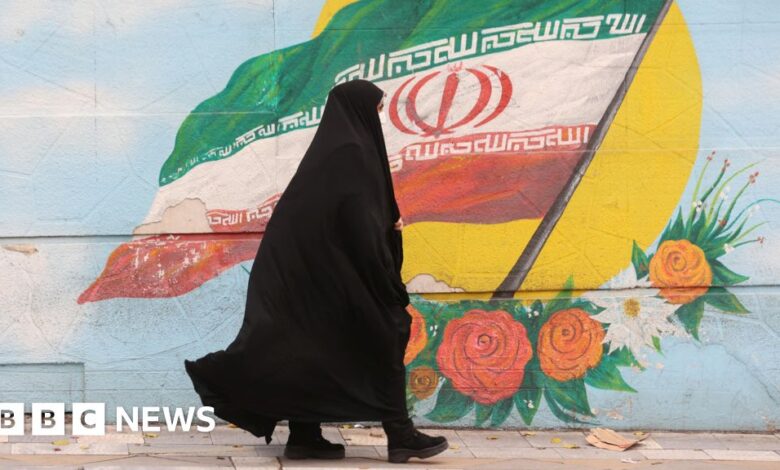Iran temporarily suspends controversial new dress law

Iran’s National Security Council has paused enforcement of the controversial “hijab and chastity law,” scheduled to take effect on Friday.
President Massoud Pezeshkian called the law “vague and in need of reform”, signaling his intention to reassess the measures.
The proposed new bill – which would introduce harsher punishments for women and girls for exposing their hair, forearms or lower legs – has been heavily criticized by human rights activists.
Strict dress codes for women and girls, which the Islamic Republic of Iran’s rulers have considered a national security priority for decades, have previously sparked protests .
Under the new law, repeat offenders and anyone who makes a mockery of the rules will face stiffer fines and longer prison sentences of up to 15 years in prison. It will also make it mandatory for businesses to report anyone who breaks the rules.
Human rights groups have expressed alarm. Amnesty International said Iran’s authorities were “seeking to strengthen an already stifling system of repression”.
During the presidential election in July, then-candidate Pezeshkian publicly criticized the treatment of Iranian women over the issue of headscarves.
He promised not to interfere in their personal lives, a stance that resonated with many Iranians, especially from a younger generation frustrated by the government’s rigid control.
Masoumeh Ebtekar, former vice president for women and family affairs, also criticized the law, saying: “The new law is an indictment of half of Iran’s population.”
The debate over the headscarf gained momentum last week when Parastoo Ahmadi, a famous Iranian singer, was arrested after stream a virtual concert without a present audience on YouTube while not wearing a hijab.
The concert quickly went viral and the arrest of Ahmadi and her band members sparked widespread backlash. In the face of public outcry, authorities released them the next day.
Tensions around the headscarf have remained high since nationwide protests in 2022 sparked by the death of Mahsa “Zhina” Amini, a young Kurdish woman who died in police custody after being detained for allegedly violating the dress code.
Over the past two years, many young Iranian women have blatantly taken off their headscarves in public, challenging the government’s authority.
Last week, more than 300 Iranian human rights activists, writers, and journalists publicly condemned the new headscarf law, calling it “illegal and unenforceable” and calling on Pezeshkian to respect its words. promised during his election campaign.
Despite pressure from hard-line factions close to Supreme Leader Ayatollah Ali Khamenei, many young people in Iran seem unafraid to face the regime’s restrictions.
Pezeshkian’s supporters believe the new hijab law will not stop young women from challenging it and could even make the situation worse.
But the law’s supporters have pressured the president to move forward, criticizing the National Security Council’s hesitation and asking him to sign the legislation to clear the way for its implementation.
The decision to halt implementation suggests the government fears it could trigger another wave of mass protests, like those seen two years ago.




